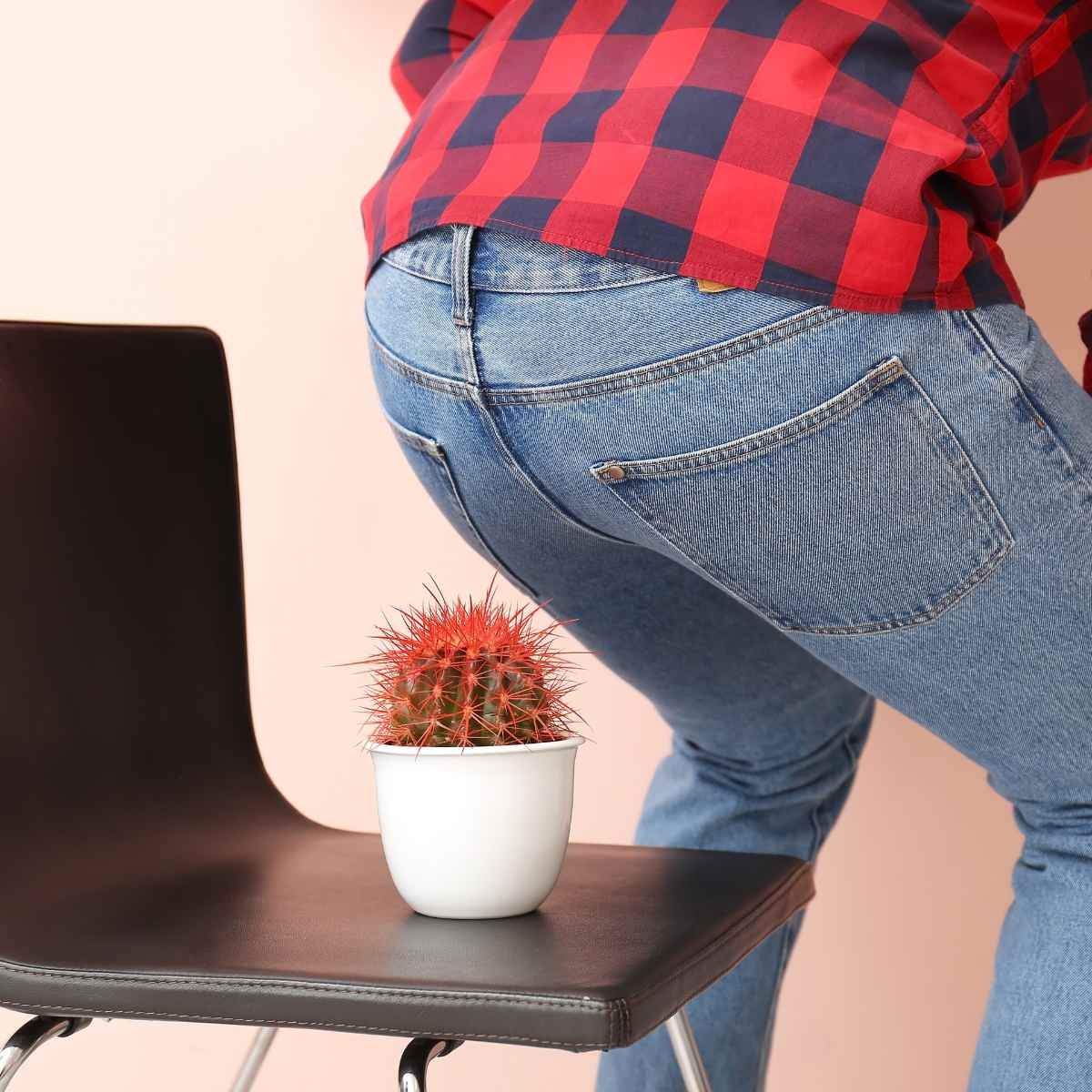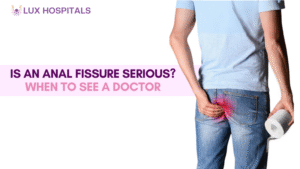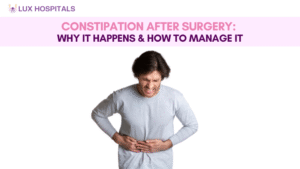“12 Reasons for Piles: Uncover the Alarming Causes Behind This Painful Condition”

Piles, or hemorrhoids, are swollen and inflamed veins in the rectum and anus that can cause significant discomfort and even pain. They are a common issue, especially in adults over the age of 50, but can affect people of all ages. Understanding the underlying reasons for piles is crucial for effective prevention and management. This blog delves deeply into the various reasons for piles, providing a comprehensive understanding of the factors that contribute to this condition.
What are the Reasons for Piles?
The following are the reasons for piles given below:
1. Chronic Constipation
Chronic constipation is one of the most common reasons for piles. When bowel movements are infrequent and stools are hard, it forces you to strain during defecation. This straining increases pressure in the rectal veins, causing them to swell. Over time, this repeated pressure can lead to the formation of internal and external piles. The prolonged sitting on the toilet that often accompanies constipation further exacerbates this pressure, making it a significant reason for piles.
2. Straining During Bowel Movements
Straining during bowel movements, even in the absence of constipation, is a key reason for piles. The excessive force exerted on the veins in the lower rectum disrupts normal blood flow, causing the veins to swell and eventually form piles. This can happen due to various reasons such as lifting heavy objects, persistent coughing, or even labor during childbirth.
3. Diarrhea and Frequent Bowel Movements
While constipation is a well-known reason for piles, chronic diarrhea can also be a significant factor. Frequent bowel movements irritate the rectal area, and the continuous wiping and pressure can cause the veins to become inflamed. The acidic nature of diarrhea can further irritate the anal region, leading to the development of piles. Thus, diarrhea is another reason for piles that should not be overlooked.
4. Prolonged Sitting or Standing
Spending long periods sitting or standing, especially on hard surfaces, can increase the risk of developing piles. Sitting for extended periods compresses the veins in the anal region, causing blood to pool and pressure to build up in these veins. Over time, this pressure leads to the swelling of veins, resulting in piles. This is particularly common among people with sedentary jobs or those who remain seated for long durations without taking breaks, making it a notable reason for piles.
5. Obesity and Overweight
Carrying excess body weight, particularly around the abdomen and pelvis, exerts additional pressure on the rectal veins. This increased pressure impedes normal blood flow, leading to the swelling of veins and the formation of piles. Obesity is also often associated with poor dietary habits and a lack of physical activity, both of which contribute to constipation, further increasing the risk of piles. Therefore, obesity is a major reason for piles.
6. Pregnancy
Pregnancy is a significant reason for piles, particularly during the third trimester. The growing uterus exerts pressure on the pelvic veins, causing them to enlarge and sometimes even bulge into the anal area. Additionally, hormonal changes during pregnancy, such as increased levels of progesterone, cause the walls of blood vessels to relax, making them more susceptible to swelling. Constipation, common during pregnancy due to hormonal shifts and iron supplements, can also lead to piles.
7. Aging
As we age, the tissues supporting the veins in the rectum and anus become weaker and less elastic. This weakening makes the veins more prone to swelling and becoming piles. Additionally, age-related changes in bowel habits, such as slower digestive processes and increased likelihood of constipation, further contribute to the development of piles in older adults. Aging, therefore, is another key reason for piles.
8. Genetic Predisposition
Genetics can play a role in the development of piles. Having a family history of piles can increase your likelihood of developing them. This genetic predisposition could be due to inherited traits such as weak vein walls or poor circulation in the anal region. Additionally, some people may inherit a slower digestive system, which can lead to chronic constipation and, consequently, piles. Thus, genetics is a less obvious but important reason for piles.
9. Heavy Lifting
Frequent lifting of heavy objects, whether at work or during exercise, can contribute to the development of piles. The strain associated with lifting heavy weights increases intra-abdominal pressure, which in turn puts pressure on the rectal veins. Over time, this repeated pressure can cause the veins to swell and form piles, making heavy lifting another common reason for piles.
10. Low-Fiber Diet
A diet low in fiber is a significant contributing factor to piles.Fiber plays a crucial role in maintaining healthy digestion by adding volume to the stool, making it easier to move through the intestines. Without adequate fiber, stools become hard and difficult to pass, leading to straining during bowel movements. This straining increases pressure on the rectal veins, leading to the development of piles. Processed foods, which are often low in fiber, contribute to this issue. Therefore, a low-fiber diet is a dietary reason for piles.
11. Anal Intercourse
Anal intercourse can be a risk factor for piles due to the direct trauma and pressure it exerts on the anal veins. This pressure can cause the veins to swell and form piles, particularly if the activity is frequent or vigorous. As such, anal intercourse is another reason for piles that should be considered.
12. Excessive Use of Laxatives
While laxatives can help relieve constipation, their excessive or long-term use can lead to dependency and alter natural bowel movements. Over time, this can cause the muscles in the bowel to weaken, leading to more straining and the development of piles. Hence, excessive use of laxatives can be an unexpected reason for pile
Conclusion
Piles are a common but preventable condition. Understanding the various reasons for piles can help you take proactive steps to avoid them. Maintaining a healthy diet rich in fiber, staying hydrated, exercising regularly, and avoiding prolonged sitting or straining during bowel movements are key measures to prevent piles. If you are experiencing symptoms such as pain, itching, or bleeding, it is important to seek medical advice for proper diagnosis and treatment. By addressing the underlying reasons for piles, you can manage and prevent them effectively.
If your symptoms are severe or don’t improve, don’t wait—schedule an appointment at Lux Hospital for expert care and treatment. We focus on your comfort and well-being first.
Frequently Asked Questions
The most common reason for piles is chronic constipation, which causes straining during bowel movements. This straining increases pressure in the rectal veins, making them swollen and inflamed, eventually leading to piles.
Yes. While stress itself doesn’t directly cause piles, poor lifestyle habits linked to stress—like unhealthy diet, lack of fiber, dehydration, and inactivity—can lead to constipation and straining, which increase the risk of piles.
Yes. Prolonged sitting, especially on hard surfaces, puts pressure on the anal veins. Over time, this causes swelling and blood pooling, increasing the chances of developing piles, particularly in people with sedentary jobs.
During pregnancy, the growing uterus puts pressure on pelvic veins, while hormonal changes relax blood vessel walls. This, combined with constipation due to iron supplements or hormones, makes piles common in pregnant women, especially in the third trimester.
Yes. Piles can recur if the underlying causes, such as constipation, straining, low-fiber diet, or sedentary lifestyle, are not addressed. Following a healthy diet, regular exercise, and preventive care can reduce the risk of recurrence after treatment.




















